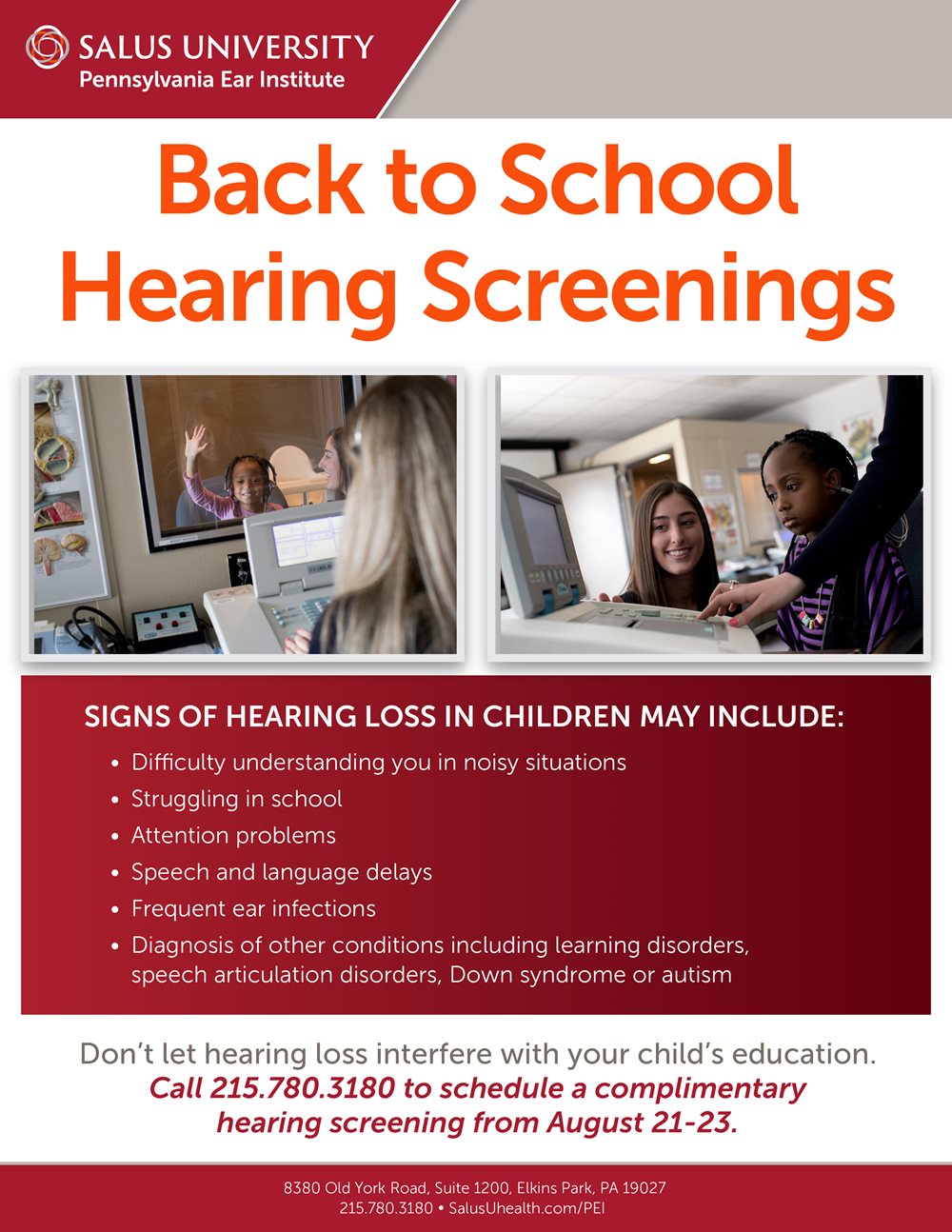Healthy Hearing Tips for Back-to-School
 According to the Centers for Disease Control (CDC), approximately 15 percent of school-aged children experience some degree of hearing loss in one or both ears. Any type of hearing loss, permanent or temporary, can affect a child’s speech, language, and social development in addition to the ability to learn.
According to the Centers for Disease Control (CDC), approximately 15 percent of school-aged children experience some degree of hearing loss in one or both ears. Any type of hearing loss, permanent or temporary, can affect a child’s speech, language, and social development in addition to the ability to learn.
“Children with undetected hearing loss may have trouble keeping up with basic early learning skills,” said Dr. Lindsay Bondurant, director of the Pennsylvania Ear Institute (PEI). “If they had trouble developing those early foundational skills for math and spelling, they are lacking those basic building blocks.”
Along with proper visual health and language skills - good hearing also plays a crucial role in a child’s academic performance. Here are three simple healthy hearing tips in time for the back-to-school season:
- Recognize the signs: Children with hearing difficulties may not realize they have an issue and are sometimes mistakenly perceived as unmotivated academically. It’s important for parents to know the warning signs. Signs of hearing loss in children can include difficulty understanding in noisy situations, poor attention skills, speech and language delays and frequent ear infections. The diagnosis of other conditions including learning disorders, speech articulation disorders, Down syndrome or autism can also be signs of a potential issue.
- Monitor noise levels: Whether it’s while riding the bus or walking to school or maybe listening to music or watching a viral video, headphones are a modern-day staple for children of all ages. When wearing headphones, sounds played at full volume can reach an average of 100-110 decibels. Consistent exposure to noise levels that high can lead to the risk of hearing damage. Encourage your child to lower the volume and give their ears a break from the noise.
- Get your child screened: It’s important for children to have a routine hearing screening at the start of the school year. The screening itself is quick and painless. At the time of the screening, the physical condition of the ears will also be inspected by an audiologist. At the conclusion of the screening a “pass” indicates no further action is required while a “referral” means that the audiologist recommends a rescreen in about two weeks, or a full evaluation if a hearing problem is suspected.
“Early identification and early interventions are absolutely the name of the game - I think any time we identify a hearing issue with a child, we need to do anything we can to provide support to that child,” said Dr. Bondurant. “It’s never too late to do something to make their life easier and give them support.”
Just in time for the back-to-school season, PEI is offering complimentary hearing screenings from August 21-23. For more information or to schedule a screening appointment, call 215.780.3180.